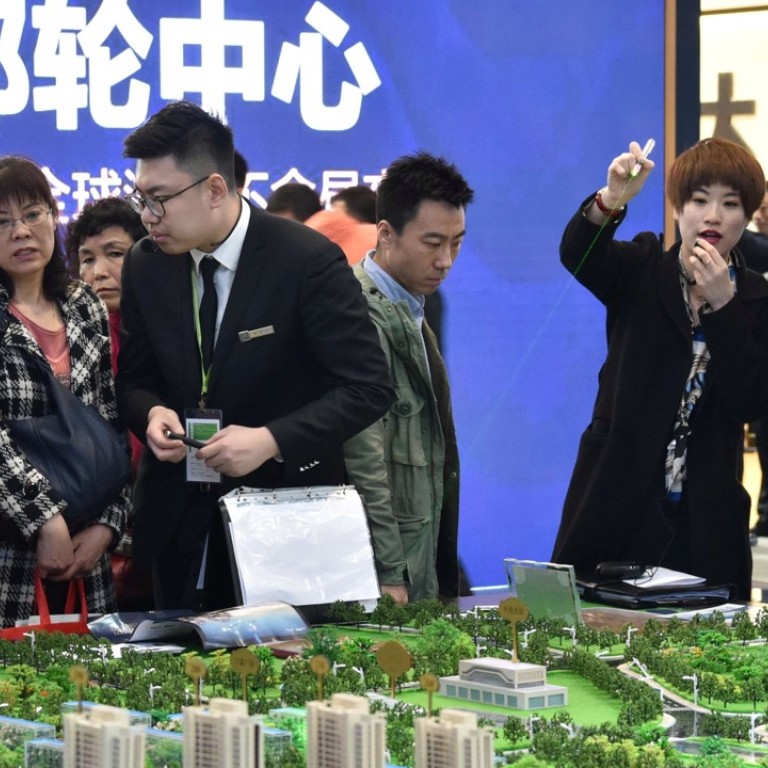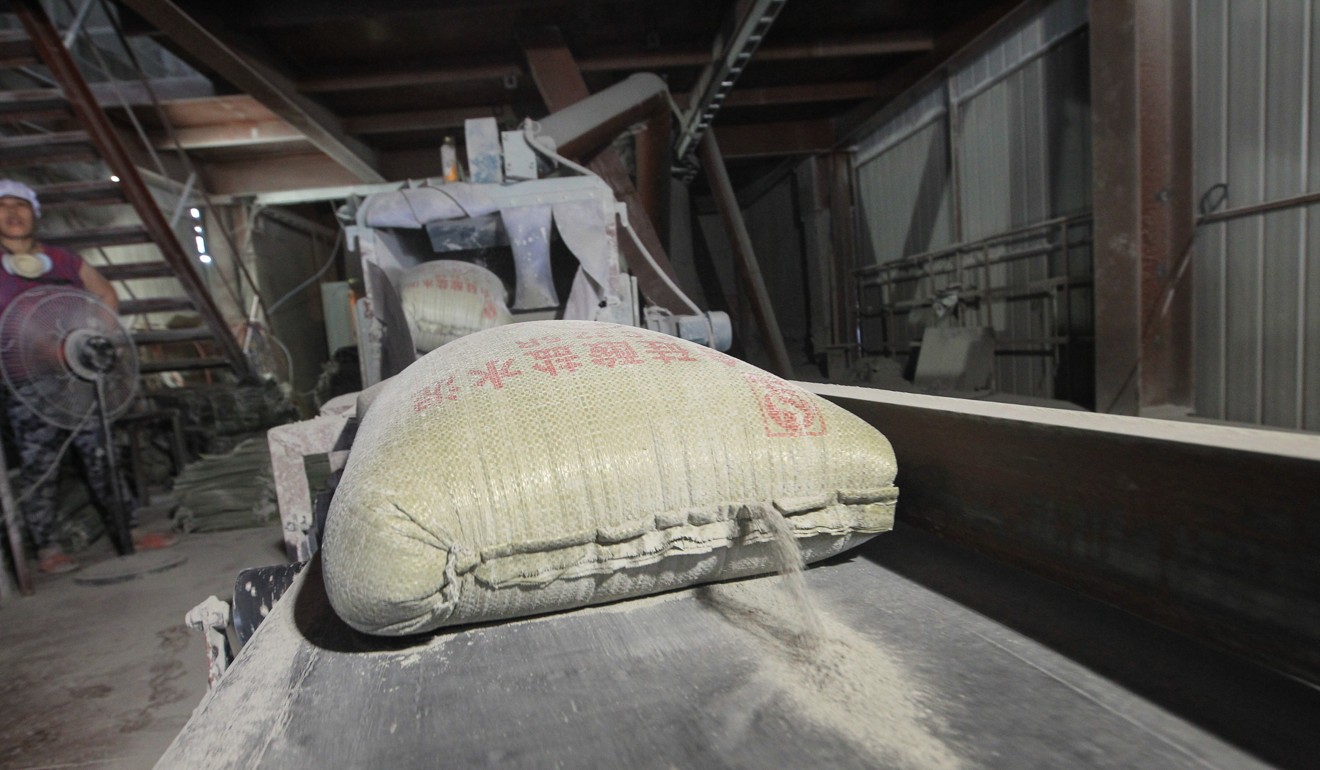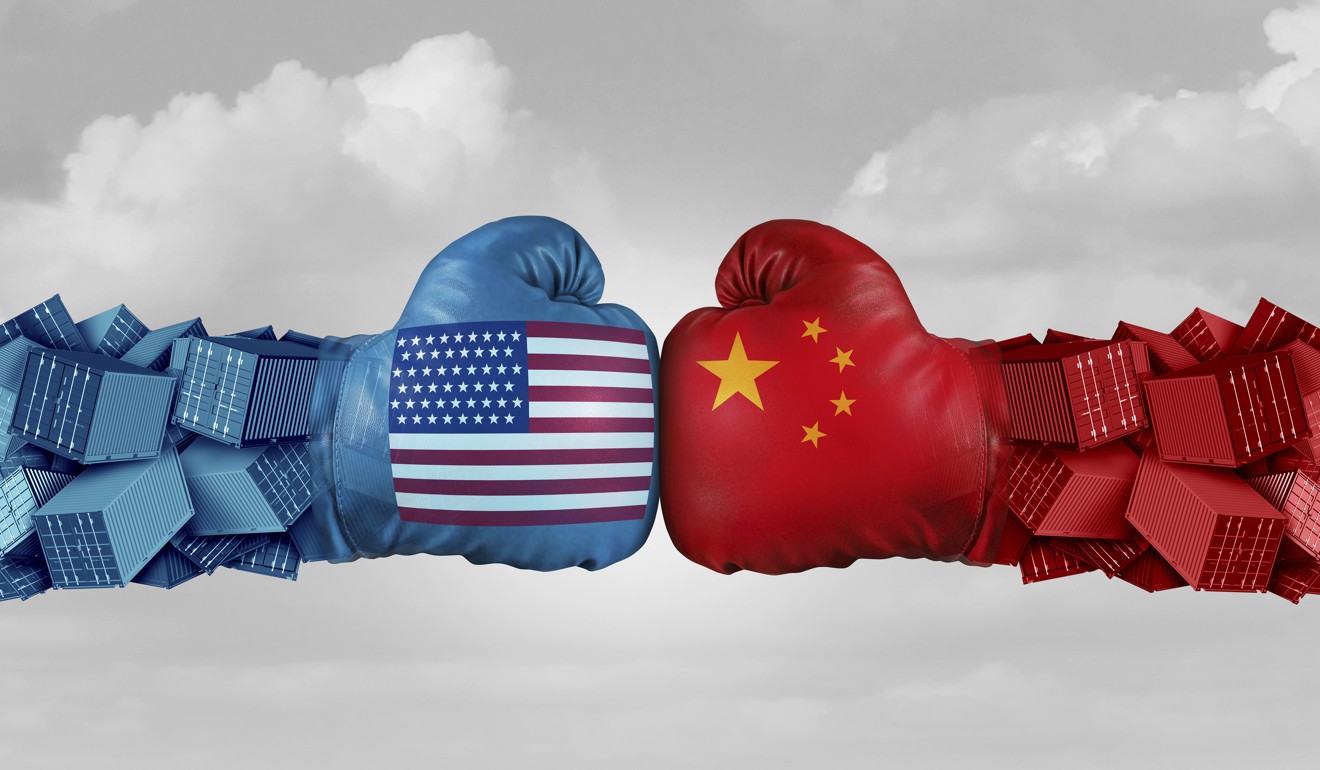
All signs point to an impending economic slowdown in China
Retail, property and fixed-asset investment growth have slowed down this year, while worsening trade ties with the US could weigh down the economy further
The outlook for China’s economy remains uncertain in the months ahead amid a slowdown in the pace of real estate investment, continuing financial deleveraging and patchy trade relations with the US, analysts warn.
“There are signs of headwinds developing as the housing market strength is expected to wane and Beijing’s risk control on local government debt will weigh on infrastructure spending,” said Aidan Yao, emerging Asia economist at AXA Investment Managers, on Thursday. “Significant uncertainties also exist on the external front, with the Sino-US trade tensions casting a cloud over China’s export outlook.”
Yao expects economic growth to moderate to 6.5 per cent in 2018.
China’s economy grew 6.8 per cent in the first quarter, exceeding expectations, after expanding by 6.9 per cent in 2017.
Recent economic data from other areas suggest a slowdown is likely.
While industrial output has exceeded expectations, growing 7 per cent in April from 6 per cent in March, retail sales growth dipped to 9.4 per cent year on year in April, down 0.7 percentage points from a month earlier.

Property sales growth too slowed to 1 per cent in the first four months of the year, compared with 8 per cent growth in the same period last year. In April alone, sales dropped 4 per cent from a year earlier.
Total fixed-asset investment for the first four months rose 7 per cent year on year, down from 7.5 per cent for the three months to March, showing investment has been weighed down by the credit strain because of China’s deleveraging campaign that targets more disciplined lending.
Analysts with Macquarie noted while exports grew 14 per cent in the first four months to April, seemingly quite strong, it was boosted by the 8 per cent appreciation of the yuan against the US dollar.
“As such, the contribution of exports to GDP growth, measured by the yuan, is smaller than the headline export growth in US dollar terms,” Macquarie analysts said on Tuesday.
They said a slowdown in property, credit growth, export and consumption could prove to be a drag in the coming months.
The Swiss bank UBS said external factors such as US-China trade ties could also have a huge impact on the economy and should not be underestimated.

“US-China trade relations could worsen over the longer term, notwithstanding scope for periodic compromises, concessions and pauses in the interim,” a research note from UBS said on Wednesday.
US President Donald Trump tweeted on Sunday, saying that he and Chinese President Xi Jinping were working together to give the Chinese telecom equipment maker ZTE “a way to get back into business, fast.”
The drastic change in Trump’s tone towards ZTE has prompted many to believe that the tension is about to ease between two of the world’s biggest economies.
US-China trade relations could worsen over the longer term, notwithstanding scope for periodic compromises, concessions and pauses in the interim
The company shut its main operations after the Commerce Department banned US companies from selling components to ZTE for seven years after it violated the terms of a settlement deal for illegally shipping goods made with US parts to Iran and North Korea.
But some observers like Arthur Kroeber, research head at Gavekal Dragonomics, feel that relations between the countries are unlikely to improve.
“It is possible that all this back-and-forth [visits and talks] will allow a reduction or delay in the tariffs that the two sides have threatened … but it will also be cosmetic.”
He said the rivalry between the US and China is not principally about trade, and is only marginally about Donald Trump. It is really about China’s emergence over the last five years.
“These developments have caused the American security and foreign policy establishment to conclude that the US is now in a long-run strategic competition with China for technological and military superiority, and for dominance of the global economic system,” he said.
UBS analysts find that sectors exposed to similar risks as ZTE roughly match those featured prominently in “Made in China 2025” – aerospace, power equipment, rolling stock, and medical equipment.
Made in China 2025 is a strategic initiative launched by Beijing in May 2015 to comprehensively upgrade China’s industry and move its manufacturing up the value chain.
Among them, semiconductor, automation and aerospace have the largest exposure to US technologies.

“From a macro perspective, if the US were to ban exports of selected goods and components to China, it would probably weigh on China’s industrial production and employment in affected sectors, and indirectly impose downward pressure on China’s exports,” UBS analysts said.
Even without the implementation of such restrictions from the US, lingering uncertainties are likely to deter orders, and may also divert investments to other countries, they added.
However, if China’s exports or growth slow down notably during the fallout, analysts believe the authorities would further ease domestic macro policies.
“The current credit tightening policies, especially those related to infrastructure investment, might be relaxed or reversed,” analysts from UBS said.
Analysts feel that the chances of China using its currency as a retaliation tool are very low, although the yuan could potentially come under some depreciation pressure in a trade war.
“Beijing appears to have started to enact safety measures, by providing liquidity support via reserve requirement ratio cuts and lowering tax burden for small businesses and households,” said Axa’s Yao.
“These fine-tuning of policies could be turned into outright easing if the economy suffers an adverse shock and growth slows too sharply.”

